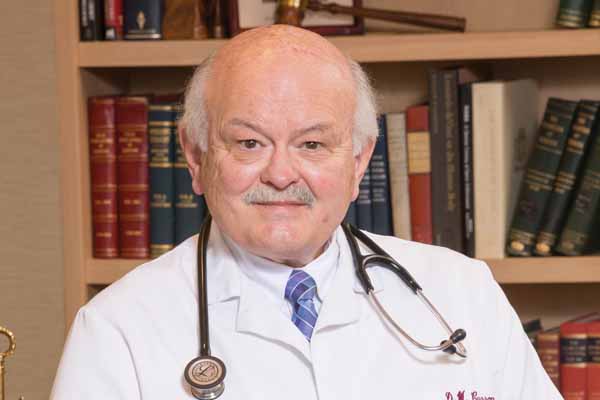
Charting Medicine's Statehouse Progress
Medicine didn’t get everything it needed from lawmakers for Medicaid, including TMA’s biggest and boldest ask of the 2019 session. Still, progress TMA achieved on managed care reform and other facets of Medicaid will advance physicians’ efforts to care for the most vulnerable Texans.
Those wins collectively softened the impact of one of the session’s greatest disappointments for medicine: The legislature provided no new funding for Medicaid physician payments. TMA had requested $500 million in general revenue to give physicians their first meaningful Medicaid increase in decades. Nor did lawmakers follow through on medicine’s request to extend comprehensive postpartum coverage. (See “Public Health” page 19.)
Doug Curran, MD, who was TMA president at the beginning of the session, designated improving physician Medicaid payments as his top priority. He called the legislature’s inaction “hurtful to our people” and said medicine must continue advocating for change in next year’s interim session.
“Just like a physician who is taking care of a patient and the patient is not doing what they’re supposed to be doing … we must tell our legislators that we’ve got to reach out and change some of the stuff that’s going on in Medicaid, and [with] the underinsured or the uninsured,” Dr. Curran said. “If we don’t do that, we’re going to see the Texas economy begin to suffer. And that’s probably going to happen within the next three or four years, especially if we have an economic downturn. We’ve got to convince our legislators in this interim that they have got to address the issues of lack of access both in Medicaid and [with] the uninsured and the underinsured.”
However, following a year in which negative media attention put Texas Medicaid’s managed care companies under intense focus, several important reform bills earned passage.
One key measure: Senate Bill 1207 by Sen. Charles Perry (R-Lubbock), which introduces new requirements to hold Medicaid managed care organizations (MCOs) accountable for prior authorization decisions. The bill requires MCOs to:
• Provide an explicit clinical reason for a prior authorization denial;
• Provide a specific list of the documentation required to complete a request for prior authorization; and
• Give the requesting physician the chance to speak to a medical director within the same or similar specialty who has experience treating the same population as the patient.
The bill also establishes a process for patients to request an independent review of an MCO’s denial of care or reduction of services, and requires MCOs to maintain an up-to-date catalogue of prior authorization requirements on their websites.
Round Rock pediatrician Maria Scranton, MD, chair of TMA’s Select Committee on Medicaid, CHIP, and the Uninsured, says the requirement for MCOs to “make it clear exactly what the problem is” for prior authorization was a major victory.
Medicine’s request for MCO medical directors to be available after hours for peer-to-peer discussions didn’t materialize, but “I’m hoping that at least knowing what exactly is needed for the prior authorization is going to help us not have to do so many peer-to-peers,” she said. “Part of the problem with Medicaid is that the paperwork and the administrative responsibilities are so high that first of all, you’re not getting that much money in the first place. But now, if you’re having to hire people to help you do all of this stuff, then it’s really taking away [from patient care]. So if you could eliminate some of the paperwork burden, in some ways that would be like a small raise.”
Meanwhile, Senate Bill 1096 also by Senator Perry and sponsored by Rep. Tom Oliverson, MD (R-Cypress), will ensure that children who participate in STAR Kids, an MCO model for medically complex and frail children, will have uninterrupted access to established medications by heavily restricting the use of prior authorization for prescription drugs.
Other promising wins:
• House Bill 25 by Rep. Mary Gonzalez (D-Clint) will establish a pilot program to transport pregnant and postpartum women to and from medical appointments, with their children in tow.
• Senate Bill 748 by Sen. Lois Kolkhorst (R-Brenham) and sponsored by Rep. Sarah Davis (R-Houston) directs the state to expand pregnancy medical home pilots to new sites and to test the use of telemedicine, telehealth, and telemonitoring to improve prenatal and postpartum care.
• In the 2020-21 budget, lawmakers approved more than $100 million to help rural hospitals, a portion of which is dedicated to helping those hospitals retain labor and delivery service.
Tex Med. 2019;115(8):23
August 2019 Texas Medicine Contents
Texas Medicine Main Page